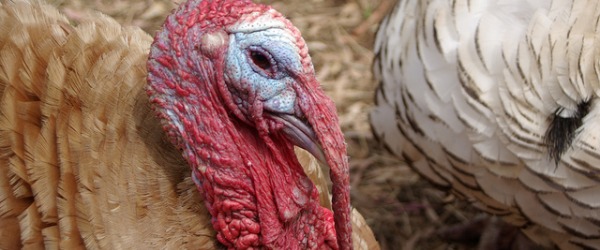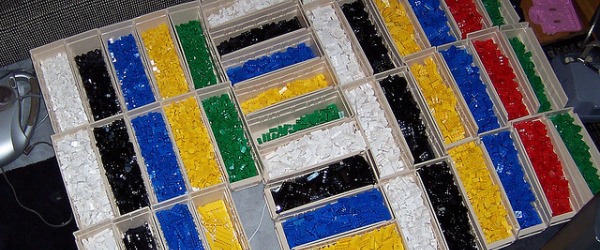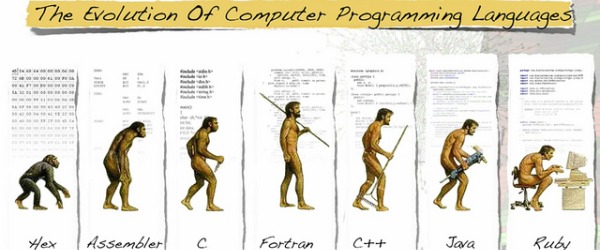You Too Can be a MacGyver in the Lab!
Resolve lab obstacles with creative solutions with these non-lab products that can actually be very useful in the lab environment.
Join Us
Sign up for our feature-packed newsletter today to ensure you get the latest expert help and advice to level up your lab work.
Search below to delve into the Bitesize Bio archive. Here, you’ll find over two decades of the best articles, live events, podcasts, and resources, created by real experts and passionate mentors, to help you improve as a bioscientist. Whether you’re looking to learn something new or dig deep into a topic, you’ll find trustworthy, human-crafted content that’s ready to inspire and guide you.

Resolve lab obstacles with creative solutions with these non-lab products that can actually be very useful in the lab environment.

The relationship you have with your supervisor during the course of your PhD is a critical one. Like all other personal or professional relationships it can range from being harmonious to disastrous. Choosing a supervisor you think will work well with you in the first place is important, however it can be difficult to foresee…

Figures play a central role in science not just as a way of displaying results, although this is obviously important, but also as a way of getting across complicated theories and processes in a relatively simple and direct manner. I’m a firm believe in the power of putting ideas into diagrams and spent a considerable…

A variety of lab supplies can be purchased off the shelf in your neighborhood, which can save you time and money. Here is a grocery list of items that you can stock your lab with today!

So you’ve performed a test such as an ANOVA and have found that there is statistical significance in your data (lucky you!), however you now want to know where that significance lies. When you are comparing multiple sets of data it might seem like a logical thought to simply perform an individual t-test between each…

The great thing about being a scientist is, well… that you get to be a scientist! And it can be fun and rewarding. But being a scientist can be a nasty stressful business too. As I come to a turning point in my ‘academic career’, I find myself making mental notes of the pros and…

Last week I focused on the left-hand side of this diagram and talked about statistical tests for comparing only two datasets. Unfortunately, many experiments are more complicated and have three or more datasets. Different statistical tests are used for comparing multiple data sets. Today I will focus on the right side of the diagram and…

So you grab a quick 5 minutes in between lectures to sit down and tackle an item on your to-do list: order a secondary antibody for an upcoming experiment. But when you start to search your favorite secondary antibody provider’s website, you realize it is not going to be a 5 minute job. Conjugated, F(ab’)2…

The first hurdle in learning about statistics is the language. It’s terrible to be reading about a particular statistical test and have to be looking up the meaning of every third word. The type of data you have, the number of measurements, the range of your data values and how your data cluster are all…
Over the years, I have noticed that laboratory environments are just as fragile and sensitive as the experiments performed within. If permitted, the lab can deteriorate into a chaotic mess within only a few days. That is why it is crucial to establish an organizational system in the lab. Here are a few of my…

One of our readers posted the following question to us and we decided to pass it along to everybody’s favorite microbiology expert, Aunt Yersinia: For one year I am working in different research laboratories, after I got from school. I keep wondering why EVERYBODY is using pre-made Agar solutions for pouring plates, and EVERYBODY is…

Scientific success is often defined by how well your experiments progress and the results you produce. However, scientific research is driven by a curiosity about the unknown, and you cannot always be prepared for the unknown. Inevitably there will come a time when your experiments fail. In this article I give you some of the…
Just about any molecular biology experiment will involve the action of enzymes or other active proteins. And when enzymes are involved, the pH of your experimental environment is going to change. This is because most enzymatic reactions involve the loss or gain of hydrogen ions (protons), which modifies the pH of the environment. Biological systems…

This guide is full of very simple but effective tips so you can have a pleasant lab experience, and help create a happy lab.

One of the great things about being scientists is that we are lifelong learners. Scientists go to a lot of seminars, meetings and conferences. The traditional, hour-long seminar is also a great way to learn a lot in a relatively short time. So it continues to amaze me how most scientists don’t take advantage of…

Math is an important part of lab life, from making solutions to calculating protein concentrations, and miscalculations can cause mayhem for your experiments. Therefore it is important that your math is right, or you could spend weeks trying to figure out what’s going wrong in your experiments. I was hopeless at remembering how to do…

In the previous article, I showed you how to interpret mean-squared displacement (MSD) and showed four easy things you can learn from an MSD graph at a quick glance. Now let’s turn from analyzing an MSD plot to making one. I am going to use the programming language R to generate simulated data and then…
Stuff moves. It is useful to study how stuff moves, because motion analysis can tell us a lot about the object that is moving. For example, we can learn if an object’s motion is aimless, diffusive wandering, or directed towards some goal, free to explore the available environment, or restricted to a confined space. Studying…

Developing a career in the biological sciences can be a daunting venture. You must throw your heart and soul into your career and wait years before you know if you are going to be successful. For those of you who are feeling a bit lost, I have garnered some pearls of wisdom from post-doctoral scientists…

Here are our top 10 least favorite ways to ruin that larger-than-life-sized autoclave. Don’t try these—your lab manager won’t be pleased!

The conventional sequence for getting a new job in science (or anywhere else) goes like this: 1) Apply for a job 2) Get an interview 3) Ace the interview 4) Pray that your references hold up. So if you had a bad relationship with your last boss, you’re in trouble. Because no matter how well…

I met a final year PhD student once, who told me a sad story. His supervisor had a plausible idea that exercise reduces the chances of developing bowel cancer. To test the hypothesis, the student made a transgenic mouse with an increased incidence of bowel cancer and got the mice to run (or not run)…

So now you’re convinced that R is the language for you, you’ve downloaded R-Studio (from https://www.rstudio.com/) and opened it, and. . .what the hell do you do now? Great question! I always find it easiest to learn by doing something, rather than just by seeing a list of possibilities, so here I’ll walk you through…

Working with large datasets can be very frustrating and time consuming. If only there were more tools out there to simplify things without needing to invest a PhD’s worth of time to learn how to use them! I am here to tell you that there is a solution, and a free one at that. If…

I was shocked recently at a seminar called “Writing with style” by the Manchester University writer-in-residence, Chris Simms. He opened by saying that he has never done a presentation using Powerpoint in his life. What? Surely biologists and PowerPoint presentations (PPT) go together like biologists and white lab coats. They teach you to make PPTs…

A while back, I read an article on Bitesize Bio entitled “When Your Partner is NOT a Scientist” that piqued my interest…for the wrong reasons. And I discovered that I hold polar opposite views on balancing a marriage and an occupation as a scientist. So I was compelled to write this article, not to be…

Every research lab is full of equipment specially designed for specific technical and experimental requirements, unfortunately this means said equipment is often expensive. Thankfully there are simple and cheap everyday items which can help you with your experiments and generally make life a lot easier. 1) Perforated metal ladle – to fish out samples from…

Up until last year I had been working in scientific research for just over six years. The insecurity of a career in academia had always niggled at me. About eight months into a very stressful postdoc position that didn’t seem to be going anywhere, I felt my heart wasn’t in it anymore and a change…

Reagents are expensive and are a significant cost to your lab. You know what to do to keep others from stealing your reagents. But contamination, improper storage and “lost” batches will all eat into your stock of reagents, bump up your consumables costs and waste your precious time. Unless you take steps to prevent them, that…

With ever increasing demands on researchers to publish, sometimes it feels like the whole world and their dog are vying for authorship on your latest manuscript. Appropriate and fair representation of those that contributed to sample collection, lab experiments and preparation of the manuscript is essential but can often be complex. So in this article…

As biological catalysts, enzymes transform target substrates into products. Enzyme kinetics is the rate of that transformation. By understanding how an enzyme’s behavior is affected, you can figure out how it functions in physiology or fails to function in disease. Now it gets complicated… What Affects an Enzyme’s Kinetics? In the first place, most enzymes…
You’ve added the final touches to your scientific manuscript / presentation / thesis. You’ve even run the spellchecker and grammar checker and everything seems perfect. There are no little green or red squiggles under the text. Now it’s ready to submit or present – or is it? What could be wrong? If you read my…

Few scientists in the training stage are lucky enough to have the perfect advisor (aka PhD supervisor PI, boss). The reality is that most scientific advisors receive little to no training on how to be good mentors. You may want to take a look at a companion post to this one called “Getting the Most…

The monthly meeting with your supervisor is approaching and you are getting nervous. What can you do to get the most out of it? For starters, let’s hope that you are actually having regular, one-to-one meeting with your lab head. If not, you have bigger problems than just preparing (look out for my upcoming article…
You should never completely rely on your spellchecker or grammar checker when writing your scientific manuscript, thesis, or presentation. I’ll talk more about exactly why in my next article, but first let’s have a bit of fun to get you warmed up – this is Bitesize Bio after all. Over the years, I have lovingly…
Common lab reagents may appear innocuous, but don’t be fooled! Sometimes even the most-used lab chemicals are hazardous to your health. It is important to make sure you have an understanding of the dangers a reagent can present before you use it. Which common chemicals should you look out for? Here is a brief look…

Check out our rundown of the key features of the most popular reference managers to work out which one will be best for you and your research.

Whenever you make up a solution or use a purchased reagent in the lab, you trust the work of a whole army of people and equipment. If any one of those links in the chain has a technical problem or makes a mistake, then your reagent might turn out to be faulty. And that can…

If you already spend all day hanging out with other scientists, the last thing you might feel like doing is joining a professional scientific society. With today’s shrinking budgets, you might also start to question whether this line on your CV is worth the membership dues. However, joining societies has many career benefits in addition…

Unlike Nick Oswald I think I can multitask in the lab. If I organize my day efficiently and perform lots of experiments and other tasks in parallel, I get more done. But there is a school of thought – the one described in Nick’s article – that says no-one can really multitask, that our brains…

The eBook with top tips from our Researcher community.